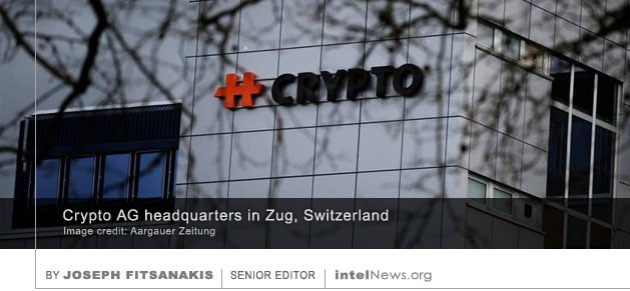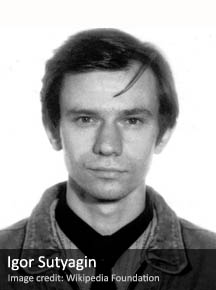CIA lost four paramilitary officers in daring South China Sea operation, say sources
September 25, 2020 2 Comments
 Four highly trained paramilitary officers of the United States Central Intelligence Agency (CIA) died during a secret maritime operation off the coast of the Philippines in 2008, according to a new report. Yahoo News, which revealed the alleged incident last week, cited anonymous former intelligence officers in its reporting.
Four highly trained paramilitary officers of the United States Central Intelligence Agency (CIA) died during a secret maritime operation off the coast of the Philippines in 2008, according to a new report. Yahoo News, which revealed the alleged incident last week, cited anonymous former intelligence officers in its reporting.
The four men were allegedly paramilitary operations officers (PMOOs) working for the CIA’s Maritime Branch, one of the three branches of the Agency’s Special Operations Group (SOG). The SOG operates under the CIA’s Special Activities Center (formerly Special Activities Division), which plans and supervises paramilitary and psychological operations around the world.
According to Yahoo News, the ill-fated operation took place in the South China Sea, a contested region that forms the epicenter of an ongoing rivalry between China, Taiwan, Vietnam, Malaysia and the Philippines, among other countries. The four PMOOs had been tasked with planting a sophisticated tracking device, disguised as a rock, which was designed to intercept signals produced by Chinese vessels belonging to the People’s Liberation Army (PLA) Navy.
The operation involved the use of a 40-foot vessel belonging to the CIA and registered to a front company in the Philippines. Onboard the ship were four PMOOs, according to Yahoo News: Stephen Stanek, Michael Perich, Jamie McCormick and Daniel Meeks. Stanek, the group leader, had served as an ordnance disposal diver in the US Navy before he was hired by the CIA. His co-diver, Perich, had joined the CIA after having recently graduated from the US Merchant Marine Academy. McCormick and Meeks had orders to stay onboard the vessel as supporting personnel.
Yahoo News claims the four men departed from Malaysia; they were carrying fake papers stating they had been hired by a Japanese company to transport the 40-foot ship to Japan. As they approached Luzon, the Philippines’ largest island, they decided to proceed with the mission, despite Tropical Storm Higos, which was dangerously approaching their location. The operation’s planners believed the storm would change course and would not affect the Luzon region. They were wrong, however, and the four men were lost at sea. Their bodies have never been found, according to Yahoo News.
Several months after the fatal incident, the CIA approached the families of the four late officers and invited them to Langley for a private ceremony, which was attended by the CIA’s leadership. That was the first time those family members were told that their loved ones had worked for the CIA. Yahoo News said it reached out to the family members, but they did not wish to comment on the story. The CIA also refused commenting on the report.
► Author: Joseph Fitsanakis | Date: 25 September 2020 | Permalink
 Switzerland is reeling from the shock caused by revelations last week that Crypto AG, the world’s leading manufacturer or cryptologic equipment during the Cold War, whose clients included over 120 governments around the world, was a front company owned by the United States Central Intelligence Agency.
Switzerland is reeling from the shock caused by revelations last week that Crypto AG, the world’s leading manufacturer or cryptologic equipment during the Cold War, whose clients included over 120 governments around the world, was a front company owned by the United States Central Intelligence Agency. A Russian-backed development bank, which is
A Russian-backed development bank, which is  Staff at a Russian disaster relief center in southern Serbia have rejected claims by American officials that the facility operates as an espionage arm of Moscow’s foreign policy in the Balkans. The Russian-Serbian Humanitarian Center was built in 2012, at a cost of nearly $40 million, following an agreement between Belgrade and Moscow. Its
Staff at a Russian disaster relief center in southern Serbia have rejected claims by American officials that the facility operates as an espionage arm of Moscow’s foreign policy in the Balkans. The Russian-Serbian Humanitarian Center was built in 2012, at a cost of nearly $40 million, following an agreement between Belgrade and Moscow. Its  The sensational assassination of Kim Jong-nam, half-brother of North Korea’s Supreme Leader Kim Jong-un, on February 13, revealed much about the current operational mindset of Pyongyang. But it also brought to light the shady network of front companies set up by the North Korean regime to facilitate the country’s illicit financial activities around the world. This extensive network permits Pyongyang to evade international sanctions against it, and to coordinate the activities of hundreds of clandestine operatives around the world. Through these activities, the reclusive country has been able to develop its weapons of mass destruction program unabated, despite concerted efforts by the United Nations to prevent it from doing so.
The sensational assassination of Kim Jong-nam, half-brother of North Korea’s Supreme Leader Kim Jong-un, on February 13, revealed much about the current operational mindset of Pyongyang. But it also brought to light the shady network of front companies set up by the North Korean regime to facilitate the country’s illicit financial activities around the world. This extensive network permits Pyongyang to evade international sanctions against it, and to coordinate the activities of hundreds of clandestine operatives around the world. Through these activities, the reclusive country has been able to develop its weapons of mass destruction program unabated, despite concerted efforts by the United Nations to prevent it from doing so.














